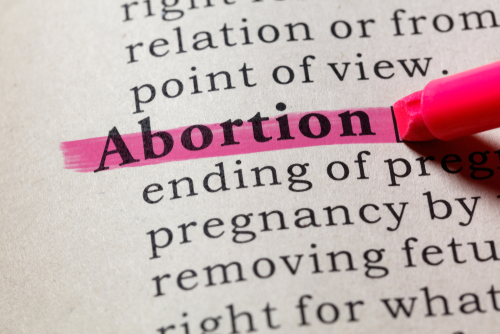There’s no due process right to perform abortions, says en banc 6th Circuit in funding case

Photo by Feng Yu/Shutterstock.com.
An en banc federal appeals court has upheld an Ohio law that bans the state from providing health funds to abortion providers.
In an 11-6 decision issued Tuesday, the 6th U.S. Circuit Court of Appeals at Cincinnati turned down a challenge by two Planned Parenthood affiliates. They had argued that the funding ban imposes an unconstitutional condition on public funding.
The Planned Parenthood affiliates “are correct that the Ohio law imposes a condition on the continued receipt of state funds,” Judge Jeffrey Sutton wrote for the majority. “But that condition does not violate the Constitution because the affiliates do not have a due process right to perform abortions.”
Four judges in the majority were appointed by President Donald Trump, Politico reports.
Planned Parenthood had complied with federal and state laws that allowed it to use government funds for health and education programs but not for abortions. The 2016 law at issue in the case went further.
The law placed new restrictions on how the Ohio Department of Health could distribute federal funds it received for six health programs. The money could not go to clinics that perform or promote nontherapeutic abortions or that affiliate with entities that perform nontherapeutic abortions.
The six health programs target sexually transmitted diseases, breast cancer, cervical cancer, teen pregnancy, infant mortality and sexual violence.
Sutton said the Ohio law doesn’t violate a woman’s right to abortion. The law “does not condition a woman’s access to any of these public health programs on refusing to obtain an abortion,” he said. “It makes these programs available to every woman, whether she seeks an abortion or not. Nor, on this record, has there been any showing that the Ohio law will limit the number of clinics that offer abortions in the state.”
Sutton noted that the 7th Circuit at Chicago had reached the same conclusion in 2012 in an Indiana case.
A 6th Circuit panel had reached a contrary decision when it upheld a federal judge’s injunction against the Ohio law, report the National Law Journal, Courthouse News Service, Cleveland.com, Politico and the Columbus Dispatch. Judge Helene White had written the decision for the three-judge panel, and she wrote the dissent in the en banc case.
“The majority’s novel rule gives the government the authority to impose almost any condition it wants on abortion providers so long as the providers continue to perform abortions,” she wrote.
White argued that the majority had failed to apply the unconstitutional conditions doctrine as articulated by the U.S. Supreme Court.
According to White, the doctrine bars the government from placing conditions on government grants if they would violate the Constitution if enacted as a direct regulation and whether the conditions affect protected conduct outside the scope of the government program.
In this case, White said, a direct regulation banning clinics from performing abortions would be an undue burden on the right to abortion. In addition, the Ohio law deals with conditions on government funding for health programs that have nothing to do with performing abortions.
The Ohio law “fails both parts of the test,” she concluded.
Planned Parenthood said it was weighing its next step, according to Cleveland.com.
Write a letter to the editor, share a story tip or update, or report an error.


